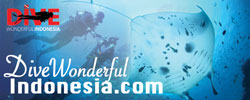Surabaya Tourism
The capital of East Java is located on the northeast of Java Island. The city encompasses 290,44 sq km and is inhabited by more than 3 million people. Today`s reality is mundane by comparison. Surabaya is a warm, sprawling city. The primarily centre for trade, finance and manufacturing, over the past few years the latest developments include the establishment of some new residential suburbs and a large industrial estate at Rungkut in the southeast of the city. As the second biggest city in Indonesia, Surabaya is proud to be awarded the Nugraha Adipura, the supreme token of recognition for urban cleanliness. All the more reason then, to visit Surabaya, the `Adipura City'.
HEROES
MONUMENT
Tugu Pahlawan, the Heroes Monument is a tall commemorative monument
standing aloof and proud in the centre of the main city square, located
in Taman Kebon Rojo opposite the East Java Governor's Office in Jalan
Pahlawan. It was erected in honour of the merits and sacrifices of
the heroes fallen during the "Battle of Surabaya". The monument
becomes a centre of Major attention every November 10th, "The
Heroes' Days", the day when the nation commemorates those who
died during the war of independence.
GRAHADI
Grahadi is the convention hall and the official residence of East
Java's Governor. Its official status can be seen from the huge flagpole
and the cannons exhibited on the lawn. The building itself reminds
us of the Dutch Colonialism in Indonesia. Official ceremonies are
usually held at the Grahadi's park. Across the street, facing Grahadi,
is the statue of East Java's first Governor, Mr. Soerjo. Behind the
park, where the statue of Mr. Soerjo is stands, there is a statue
known as `Joko Dolog'. It stands in a secluded garden, and believed
to have been created by Kertanegara, the last king of the 13th century
dynasty of Singosari.
MPU
TANTULAR MUSEUM
As an ethnographic and archeological museum, Mpu Tantular exhibits
relics from prehistorically eras, stone relics from the Majapahit
period, Chinese/Anamneses/ Majapahit ceramics, Wayang figures, pictures
of Old Surabaya, and early batik making equipment. The museum is located
opposite the Surabaya Zoo.
SURABAYA
ZOO
The zoo, located at Setail Street 1, is said to be the largest zoo
in South East Asia.
The zoo is well stocked and offers a good selection of different kinds
of animals, such as monkeys, deer’s, zebras, lions, elephants,
camels, the famous Komodo Dragons, and many more.
KALI
MAS TRADITIONAL PORT
Comprising a two kilometre stretch of warehouses and wharwaves along
the eastward flank of Tanjung Perak, Kali Mas is a living history
of Surabaya's maritime heritage where of carts and human toil continue
to fill and empty the holds of broad-beamed pinisi schooners much
as they have for 600 years. Timber from Kalimantan, glassware from
Sulawesi, motorcycles, plastic, grain, powdered milk - any cargo too
small or destined for too remote a location to warrant container shipment
find its way aboard the tall mated sailing ships of Kali Mas. Best
visited in the morning before the sun climbs too high and the schooners
set sail.
KAYOON
PARK
Located along the western bank of the Kayoon River is an evening recreation
park. Typical East Java food of fared by some hawkers can be tried
and tasted here. North of the Kayoon Park is KAYOON FLOWER MARKET,
stocked with flowers from the nearby mountain resorts, sells a great
number of tropical flowers and colorful aquarium fishes. It's worth
visiting.
ARAB
QUARTER / KAMPUNG ARAB
The Qubah Quarter is located nearby Red Bridge. Narrow, colorful streets
are reminiscent of the Middle East, yet not quite the same. At the
centre of this old and seemingly separate part of the city is the
tomb of Sunan Ampel, whose spirit still seems to live among his descendants.
At Kampung Arab, there is the chance to do some additional shopping
like rare oils, potions, and other exotic wares.
JEMBATAN
MERAH / RED BRIDGE
The Red Bridge is the site of the most savage battle of the revolution
in Java. Here where the `Great Battle of Surabaya' took place on November
10, 1945, Three months after the Proclamation Independence. Further
down from the Red Bridge is the area known as China Town with its
typical, old Chinese buildings, This is Surabaya's section of business
and trade.
Visit Surabaya Tourism Website












